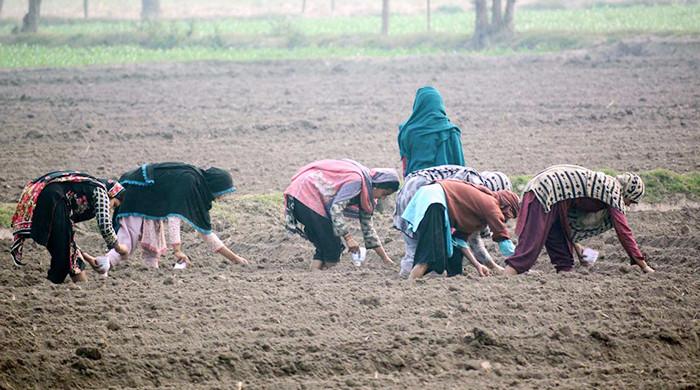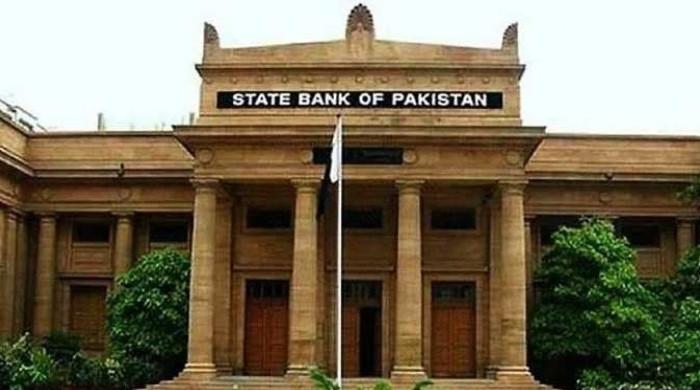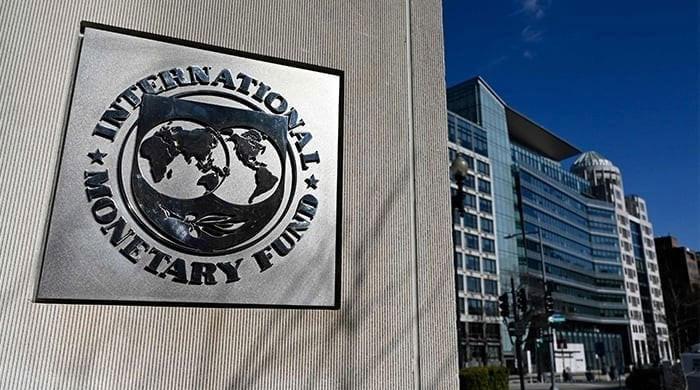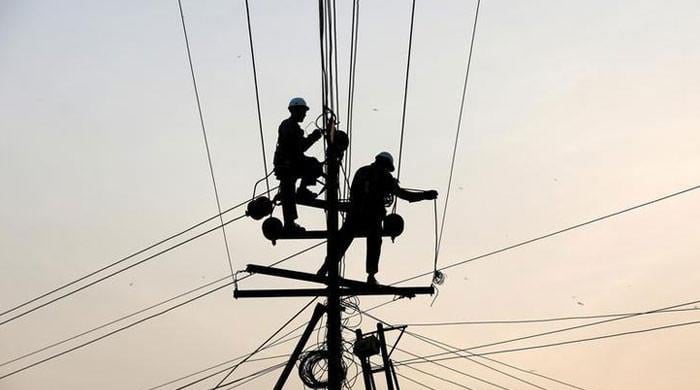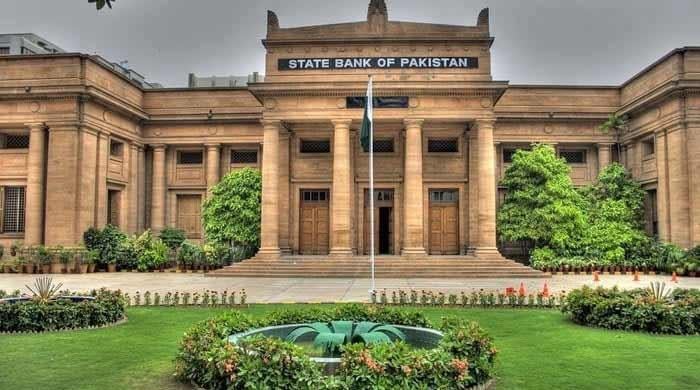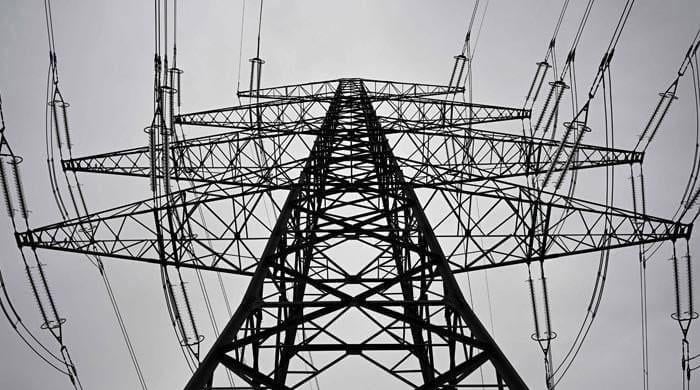IMF charges Imran Khan govt with significant fiscal slippages
IMF says programme implementation regressed shortly after the sixth review was completed in November
September 03, 2022
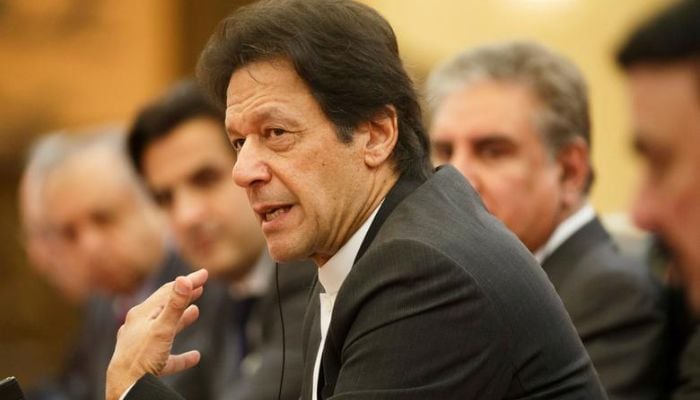
- IMF criticises former PTI-led government's policy missteps.
- Says programme implementation regressed shortly after the sixth review in November.
- Several key EFF commitments were reversed, it says.
The International Monetary Fund (IMF) has criticised the former PTI-led government's policy missteps, saying that programme implementation regressed shortly after the sixth review was completed in November, The News reported.
According to the IMF staff report issued following the completion of the 7th and 8th reviews and the revival of Pakistan's stalled Extended Fund Facility (EFF) programme, amid a tense political landscape, programmed fiscal adjustment was undone and several key EFF commitments were reversed.
Two end-June performance criteria (PC) — net international reserves (NIR) and primary budget deficit — were missed, as were three continuous PCs. In addition, seven structural benchmarks (SBs) were not met.
The report says political tensions led to significant fiscal slippages. The former government granted a 4-month "relief package" in late February 2022 that reversed commitments to fiscal discipline made earlier in the year. The largely untargeted package (i) reduced petrol and diesel prices (through a generous general subsidy and setting fuel taxes at zero taxation); (ii) lowered electricity tariffs by PRs 5/kwh for almost all households and commercial consumers; and (iii) provided tax exemptions and a tax amnesty. These measures were accompanied by the deferral of regular electricity tariff increases, as well as increases in the minimum wage and public wages and pensions, and additional food subsidies. The retention of these measures, as well as additional slippages in Q3 and Q4, widened the FY22 fiscal deficit by more than 1.5 percent of GDP, missing the end-June fiscal target by a wide margin.
However, more recently, the authorities have taken several actions to bring the EFF back on track, including passing an ambitious budget for a primary surplus, significantly increasing the policy rate, eliminating post-tax fuel subsidies, and increasing fuel taxation and electricity tariffs. They also plan to strengthen supervision and take the necessary actions to safeguard financial sector stability.
Key policy recommendations
The programme seeks to restore fiscal discipline and debt sustainability while protecting social spending, safeguarding monetary and financial stability, maintaining a market-determined exchange rate and rebuilding external buffers.
New structural benchmarks support efforts to enhance social protection (new PC), strengthen energy sector viability, and support financial stability. Despite the recalibration, the goals of mobilizing additional high-quality tax revenue and substantially increasing reserve coverage are out of reach.
Staff views
Staff supports the completion of the seventh and eighth reviews, the extension of the programme through end-June 2023, and augmentation of access by SDR 720 million based on corrective actions and policy commitments. Still, programme risks remain exceptionally high and consistent and decisive implementation will be essential to improve economic prospects. This review will make available SDR 894 million and help catalyse essential external financing.
On April 10, PML-N's Shehbaz Sharif became Prime Minister of the coalition government with the Pakistan People’s Party and other smaller parties. The new government took power after a no-confidence vote against former PM Imran Khan. The political environment, however, is complex: the governing coalition enjoys a slim majority and comprises traditionally opposing parties, while former PM Imran Khan continues to hold large protests across the country and had a strong showing in key Punjab by-elections. The government has expressed its intention to complete its term, with elections due no later than August 2023.
The authorities have renewed efforts to stabilise the economy and bring the programme back on track. After some initial delay, the new government started to unwind the relief package in late-May 2022, removing the untargeted power and post-tax fuel subsidies, commencing the restoration of the Petroleum Development Levy (PDL), while expanding social support schemes.
Additionally, it adopted the FY23 budget, which entails a sizable primary balance adjustment, while the SBP has tightened monetary policy considerably to address inflationary pressures. Risks to the outlook and program implementation remain high and tilted to the downside given the very complex domestic and external environment.
Spillovers from the war in Ukraine through high food and fuel prices, and tighter global financial conditions will continue to weigh on Pakistan’s economy, pressuring the exchange rate and external stability.
Policy slippages remain a risk, as evident in FY22, amplified by weak capacity and powerful vested interests, with the timing of elections uncertain given the complex political setting. Socio-political pressures are expected to remain high and could also weigh on policy and reform implementation, especially given the tenuous political coalition and their slim majority in Parliament.
Furthermore, high food and fuel prices could prompt social protest and instability. All this could affect policy decisions and undermine the program’s fiscal adjustment strategy, jeopardising macro-financial and external stability and debt sustainability. Moreover, elevated near-term domestic financing needs may overstretch the financial sector’s absorption capacity and cause market disruption.
Debt Sustainability Analysis (DSA) highlights that public debt remains sustainable over the medium term with strong policies and robust growth, albeit with increased uncertainty. Substantial risks stem from higher interest rates, a larger-than-expected growth slowdown, pressures on the exchange rate, renewed policy reversals, weaker medium-term growth, and contingent liabilities related to SOEs.
Further delays on structural reforms, especially those related to the financial sector (resolving undercapitalised banks and winding down SBPs involvement in the refinancing schemes), could hamper financial sector stability and reduce the effectiveness of the monetary policy. Finally, climate change risks are mounting, including a tendency for more frequent climate-related disasters.




